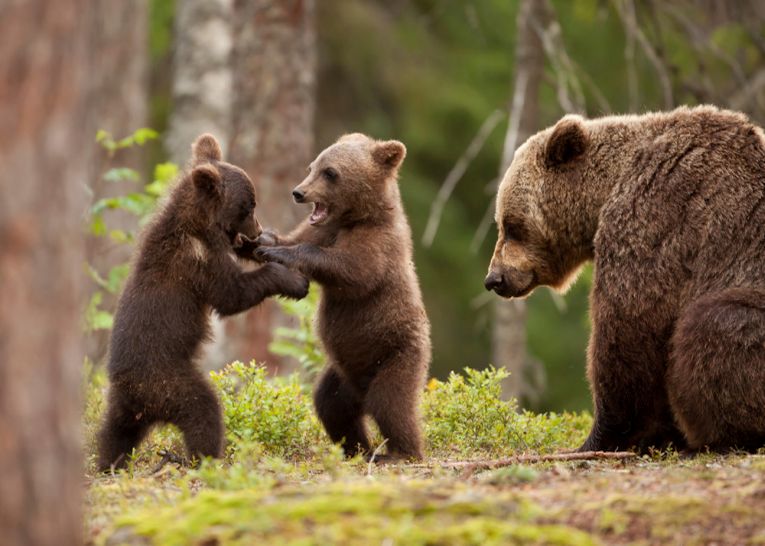Pollution and human encroachment may be a great threat elsewhere, but forests are suffering more from wind, bark beetles and wildfire. Europe's forests are very much protected these days, but climate change has been defeating the object of trying to maintain the vestiges of the great Eurasian forest that once covered the land. To check up on forestry worldwide, look at - The Earth Times Encyclopaedia.
Studying the last decade, Rupert Seidii, Mart-Jan Schelhaas, Werner Rammer and Pieter Johannes Verkerk of BOKU (Vienna), Wageningen University and the European Forest Institute in Finland fed the figures into climate model programmes and came up with this forecast of further damage. The danger to the "forest carbon budget," that naturally regulates our carbon dioxide is acute. They estimate we will lose almost an extra million cubic metres of timber every year to these 3 major threats. For the detail, go to - Nature: climate change.
While we are trying to increase the forest carbon sink, the loss of timber before 2030 is likely to prevent that from happening. The management of forest now includes methods of increasing the absorption of carbon. To improve these techniques, it will now be necessary to improve the trees' ability to survive fire, beetle attack and "windthrow." Windbreaks, fire management and resilient varieties are needed over a vast area in the north and east, as well as the few larger forested areas in Western Europe. In the south, just as in Australia and California, fire is proving to be a tough taskmaster. The struggle to maintain cork oak or any other natural community in Spain and Portugal will be a difficult one.
One of the problems with beetle pests is the fungal infections they spread. Britain already looks likely to lose the ash (Fraxinus excelsior) after the loss of the elm, Ulmus procera in both Europe and North America several decades ago. Throughout Europe, many others have already gone or are threatened. The warming of the northern hemisphere will result in the northern spread of several beetle species and the faster growth of fungal infections.
The hope is that cuttings from elm, ash and oak will form the basis of new semi-natural plantations of these lost species, part of the great ecosystems that created legends of insect, mammal and bird species in the ancient wood.










